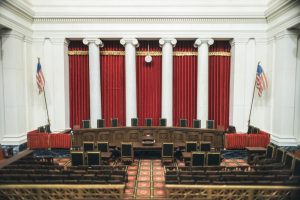Broad, all-encompassing (and sometimes painful) discovery is a uniquely American staple of litigation. Although it is a matter of perspective, avoiding this discovery may be a selling point for international companies both to resolve their disputes through arbitration and to locate that arbitration outside the United States.
Of course, arbitration does not absolve all discovery responsibilities. Beyond the discovery permitted under the applicable institutional or tribunal rules, global entities can also obtain discovery from individuals and companies within the United States’ borders through 28 U.S.C. § 1782 (“Section 1782”), which allows a party arbitrating before a “foreign or international tribunal” to bypass traditional procedural burdens of the Hague Convention and obtain discovery of witnesses and documents located in the United States by petitioning a federal district court. No other country has similar legislation, which essentially allows a wholesale bypass of the Hague Convention.
Those engaged in private arbitration proceedings abroad may want to use Section 1782 to obtain discovery in the United States. Who can use this statute turns on how a “foreign or international tribunal” is defined. In the 2004 decision Intel Corp. v. Advanced Micro Devices, Inc., the Supreme Court held the term “tribunal” in Section 1782 “includes investigating magistrates, administrative and arbitral tribunals, and quasi-judicial agencies, as well as conventional civil, commercial, criminal, and administrative courts.”[1] In Intel, the Supreme Court ruled that the Commission of the European Communities (which is considered a judicial arm of the European Union) was a “foreign or international tribunal” under Section 1782.
Since Intel was a case about a foreign governmental tribunal in the European Union, the decision arguably left open whether Section 1782 could be as broad in private arbitration proceedings. Circuit courts have split over whether parties to these private international arbitrations may use Section 1782 to their advantage. Interestingly, the Fourth Circuit and the Seventh Circuit have split over discovery requested in the same private commercial arbitration in the United Kingdom. Now, one of the parties to that case has asked the Supreme Court for a definitive answer.
The case petitioned to the Supreme Court involves the Boeing 787 Dreamliner aircraft. In 2016, an aircraft engine tail pipe fire occurred during a test at a Boeing facility in South Carolina. Rolls-Royce, who manufactured the engine installed on the Boeing aircraft, claimed the fire’s proximate cause was an engine valve supplied by Servotronics. After settling its more than $12 million claim with Boeing, Rolls-Royce sought indemnity from Servotronics, who refused. Rolls-Royce then commenced arbitration against Servotronics under the rules of the Chartered Institute of Arbitrators (“CIArb”) in Birmingham, England. During the arbitration, Servotronics contended it had not received critical documents from Rolls-Royce and Boeing. To resolve these discovery issues, Servotronics filed ex parte applications with two U.S. district courts for leave to serve subpoenas. In response, Servotronics has received conflicting messages from two U.S. appellate courts in its quest to use Section 1782 for discovery in the private U.K. arbitration.
The Fourth Circuit Endorsed Servotronics’ Use of Section 1782 for the Private Commercial Arbitration
Servotronics first filed an ex parte application in the U.S. District Court in South Carolina, requesting that the court issue subpoenas for the chair of Boeing’s Incident Review Board (which investigated the fire) and two employees involved in troubleshooting the engine issues. The South Carolina federal district court declined to apply Section 1782, finding the CIArb was not a “tribunal” under the statute.[2]
On appeal, the Fourth Circuit reversed, holding that Section 1782 can be used in a private “foreign or international” arbitration.[3] The Fourth Circuit concluded “[t]he current version of the statute, as amended in 1964, thus manifests Congress’ policy to increase international cooperation by providing U.S. assistance in resolving disputes before not only foreign courts but before all foreign and international tribunals.”[4] Importantly, the Fourth Circuit held CIArb was “acting within the authority of the state” because the arbitration is subject to the U.K. government’s sanctions, regulations, and oversight.[5]
The Seventh Circuit Blocked Servotronics’ Use of Section 1782 for the Private Commercial Arbitration
Servotronics next filed an ex parte application in the U.S. District Court for the Northern District of Illinois requesting that the court issue a subpoena to compel Boeing to produce documents for use in the CIArb arbitration. The Illinois federal district court granted Boeing and Rolls-Royce’s motion to quash Servotronics’ application.[6]
The Seventh Circuit affirmed the district court’s decision, and in doing so concluded the polar opposite of its colleagues in the Fourth Circuit.[7] The court observed that the word “tribunal” is not defined in the statute, and turning to statutory interpretation, held that dictionary definitions do not resolve whether private commercial arbitration panels are included in the term “tribunal.”[8] The Seventh Circuit then compared Section 1782’s use of the phrase “foreign and international tribunal” to the phrase’s use in Sections 1696 and 1781 (governing service-of-process assistance and letters rogatory, respectively).[9] The Seventh Circuit concluded that the phrase “foreign or international tribunal” refers to state-sponsored tribunals only—not private commercial arbitration panels.[10]
In reaching its decision, the Seventh Circuit also cautioned against an interpretation of Section 1782 that would provide more than what is permitted under the Federal Arbitration Act (“FAA”).[11] The FAA permits the arbitration panel (but not litigants) to summon witnesses before the panel to testify at arbitration hearings and to petition federal district courts to enforce those summons.[12] By contrast, the Seventh Circuit notes, Section 1782 allows both the panel and litigants to obtain discovery orders from federal district courts. “If [Section] 1782(a) were construed to permit federal courts to provide discovery assistance in private foreign arbitrations, then litigants in foreign arbitrations would have access to much more expansive discovery than litigants in domestic arbitrations.” The Seventh Circuit warned, “[i]t’s hard to conjure a rationale for giving parties to private foreign arbitrations such broad access to federal-court discovery assistance in the United States while precluding such discovery assistance for litigants in domestic arbitrations.”[13]
Servotronics Petitions the Supreme Court to Bridge the Divide
On December 7, Servotronics appealed the Seventh Circuit’s decision to the Supreme Court.[14] Servotronics cited its Fourth and Seventh Circuit decisions and pointed to other circuit court decisions exacerbating the inconsistent application of Section 1782.[15] The Second and Fifth Circuits have agreed with the Seventh Circuit, holding that an arbitration proceeding must be public or governmental to be a “tribunal” for purposes of Section 1782.[16] By contrast, the Sixth Circuit has agreed with the Fourth Circuit, holding that a private arbitration panel constitutes a tribunal for the purpose of Section 1782.[17] Additional appeals are pending in the Third and Ninth Circuits, meaning the potential for an increased split in the near future.[18] The First, Eighth, Tenth, Eleventh, and D.C. Circuits have yet to address the issue.
Implications of a Potential Supreme Court Endorsement of Section 1782’s Use in Private International Arbitration
Whether the Supreme Court grants certiorari remains to be seen. If the Supreme Court ultimately agrees with Servotronic’s interpretation, however, there are at least three broad implications for the private arbitration landscape.
- First, a Supreme Court endorsement is likely to open the door to private litigants’ increased use of Section 1782 to shoehorn broad discovery—generally (previously) unavailable outside the United States—into private international arbitration proceedings. As the law stands now, global companies who want to do business in the United States can often avoid the local discovery tools and procedures by demanding their contracts stipulate to binding arbitration outside the United States. A Supreme Court ruling in favor of Servotronics could broaden the available discovery tools.
- Second, beyond the increased scope of discovery, there are confidentiality concerns. Private commercial arbitrations remain a popular dispute resolution process for global companies in part because the process, documents, arguments, and outcome of the arbitration all remain confidential. Increased Section 1782 applications (that, by definition, involve public court filings) could bring unwanted publicity to high-stakes arbitration proceedings, which could put confidentiality agreements at risk and potentially destroy a key incentive for companies to pursue binding arbitration at all.
- Third, private arbitration tribunals may view the Supreme Court’s support for an expansive use of Section 1782 as an encroachment on the tribunals’ arbitral autonomy. Arbitral tribunals exercise broad power to resolve disputes when the parties have agreed to arbitrate, and, although not universal, many tribunals are accustomed to courts deferring to them if the tribunal is able to grant effective relief.[19] A broader use of Section 1782, endorsed by the Supreme Court, may be viewed as impeding the tribunals’ autonomy in dispute resolution. Parties to private commercial arbitrations abroad would then need to carefully consider strategically how their chosen tribunal will view a Section 1782 application.
If the Supreme Court grants certiorari, argument would likely occur in Fall 2021.
[1] Intel Corp. v. Advanced Micro Devices, Inc., 542 U.S. 241, 258 (2004).
[2] In re Servotronics, Inc., No. 2:18-MC-00364-DCN, 2018 WL 5810109, at *1 (D.S.C. Nov. 6, 2018).
[3] Servotronics, Inc. v. Boeing Co., 954 F.3d 209, 216 (4th Cir. 2020).
[4] Id. at 213.
[5] Id. at 214.
[6] In re Servotronics, Inc., No. 18-cv-7187, 2019 WL 9698535, at *1 (N.D. Ill. April 22, 2019).
[7] Servotronics, Inc. v. Rolls-Royce, 975 F.3d 689 (7th Cir. 2020).
[8] Id. at 693.
[9] Id. at 695.
[10] Id.
[11] Id.
[12] The breadth of the authority granted by the FAA’s Section 7 is the subject of its own circuit court split. In 2019, the Eleventh Circuit joined the Second, Third, Fourth, and Ninth Circuits in holding that while Section 7 allows arbitrators to compel non-party witnesses to attend arbitration hearings and bring documents with them, Section 7 does not permit subpoenas for pre-hearing depositions or documents. Managed Care Advisory Group, LLC v. Cigna Healthcare, Inc., 939 F.3d 1145, 1159 (11th Cir. 2019); see also Hay Group, Inc. v. E.B.S. Acquisition Corp., 360 F.3d 404, 407 (3d Cir. 2004) (then-Judge Alito holding that the plain language of Section 7 “unambiguously restricts an arbitrator’s subpoena power to situations in which the non-party has been called to appear in the physical presence of the arbitrator and to hand over the documents at that time.”).
[13] Id. at 695.
[14] Servotronics, Inc. v. Rolls-Royce PLC, et al., No. 20-_____ (Dec. 7, 2020). Servotronic’s petition to the Supreme Court is available at https://www.supremecourt.gov/DocketPDF/20/20-794/162881/20201207153530435_Petition.pdf. A response is due January 11, 2021.
[15] Servotronics, 975 F.3d at 695.
[16] NBC v. Bear Stearns, Inc., 165 F.3d 184 (2d Cir. 1999); Republic of Kazakhstan v. Biedermann International, 168 F.3d 880 (5th Cir. 1999).
[17] In re Application to Obtain Discovery for Use in Foreign Proceedings, 939 F.3d 710, 723 (6th Cir. 2019).
[18] In re EWE Gassepeicher GMBH, No. 19-mc-109-RGA, 2020 WL 1272612 (D. Del. March 17, 2020), appeal docketed, No. 20-1830 (3d Cir. April 24, 2020); HRC-Hainan Holding Co. LLC v. Yihan Hu, No. 19-mc-80277-TSH, 2020 WL 906719 (N.D. Cal. Feb. 25, 2020), appeal docketed sub nom., In re HRC-Hainan Holding Co. LLC, No. 20-15371 (9th Cir. March 4, 2020).
[19] See, e.g., Gerald Metals SA v Timis & Ors [2016] EWHC 2327 (Ch), in which the U.K. Commercial Court deferred to the London Court of International Arbitration’s ability to grant effective emergency relief under Article 9B, holding that under English law, the Court would only act if the arbitral tribunal has no power or is unable to act effectively.





